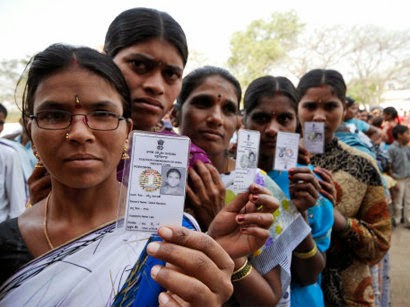I live around an hour's drive away from work, and was driving back after a long day of work. Another driver taking a rash turn, nicked my car, causing a deep scratch on the front bumper.
I was late for work by 15 mins, and was having breakfast hurriedly. Aaron my three year old son, who was playing right beside me at the dining table, spilled his hot milk on my shirt.
I was preparing for a very important meeting with the leadership team at work, and one of my team members who was helping me prepare the content, has failed to share his part on time.
The Ironing guy burnt one of the shirts, the cab guy cancelled, exam results were bad, much prepared interview was postponed, dinner at a restaurant was particularly bad and so on. Im sure we would have faced more than one of the above situations. And most of the above situations have happened for no fault of ours. Yes, this is life.
As they say, life is a roller coaster ride. And sometimes, the crests and troughs of life are as small as the above situations. Life keeps throwing situations like these at us, (and also situations much bigger and much worse than these); and life is what happens when we react to these situations. As the famous saying goes, "Life is 10% what happens to you and 90% how you react".
Let us think about how we react to these situations. We get angry or even furious, we shout on the person at fault, we loose our mind on thinking what is wrong with these people, and finally getting upset over these and losing few hours or few days. A lot of times, this anger or these reactions, have a lot of impact on people around us. Not all people react in this way; we might have seen few people react to most of the above situations in a calm and composed way. For a moment, let us understand that there is no correct reaction to the above situations; people can and do react in their own ways.
However, I always felt that people who react in calm way are the ones that loose very little in any situation. Yes, we loose or win with every reaction; and the cost always may not be monetary. On most occasions, people who react in a calm way, also are the ones who take better and informed decisions. They are also the ones who do not cascade the reaction from one situation to people around them. This post is about how can one practice being calm. How can one develop the superpower to stay calm. I believe that the ability to react in calm way to life, is developed through our own personal experiences. However, I also believe that they can be learned, like any other life skill. These 5 simple points are from my experience only, and has helped me stay calm on numerous occasions. And definitely, one need not be a sage or zen, to have this superpower.
Accept that life is not going to be a smooth ride. Life is not meant to be a smooth ride. Why not? Because our lives are interconnected with so many people, so many things, and any disturbance in any of the variables involved, leads to an impact on our lives. There are always going to be things which are out of control, and they only way we reduce the impact on our lives is identifying them and reducing the impact of them going wrong. For Example: If I have an important meeting at 9:30AM at work, keeping a 15 min buffer time for any unexpected traffic jams (even if google maps doesn't show), always helps.
It's not always someone's fault. When we are faced with any of the above situations, a lot of times the first reaction is to assume that it is someone's fault. It's not always the case. There are things which happen because of no one's mistake, but because of a combination of factors. For Example: The guy who nicked my car, may not have done it intentionally (yes it's possible). This also helps us in thinking about how could we have done better; which is always the best way of looking at things.
Listen. A lot of times, we do not listen to understand, but listen to respond. When we are trying to decode a bad situation, let's stay in business, a common mistake is making assumptions about why it happened or whose fault it is. Listening well to understand the actual course of events is very very important. Listening, though highly under-rated, is an important skill, which helps us in numerous ways.
Share right feedback, in the right way. Always believe that people will improve, if the right feedback is given, in the right way. If we are able to find out that someone has actually screwed up, please communicate specific feedback on areas where they could have done well. If they need help to improve on those areas, offer to support them. I always follow one simple rule while sharing feedback, appreciate in public and reprimand in private. After all, improvement of people around you helps you avoid this situation again, and hence you win from putting all of this effort.
Be solution focussed, always. This is the last rule, but the most important. Being solution focussed in every situation helps us react in the best way possible, and also helps us resolve issues faster. The solution in some cases could be just getting out of the situation, or in some cases could be a financial settlement with another party, or in some cases a negotiated agreement. Always have the solution in mind, the solution which resolves the situation, in a favourable way for all parties, and pursue this at all times.
(All the scenarios mentioned above are only fictional. Luckily!)










